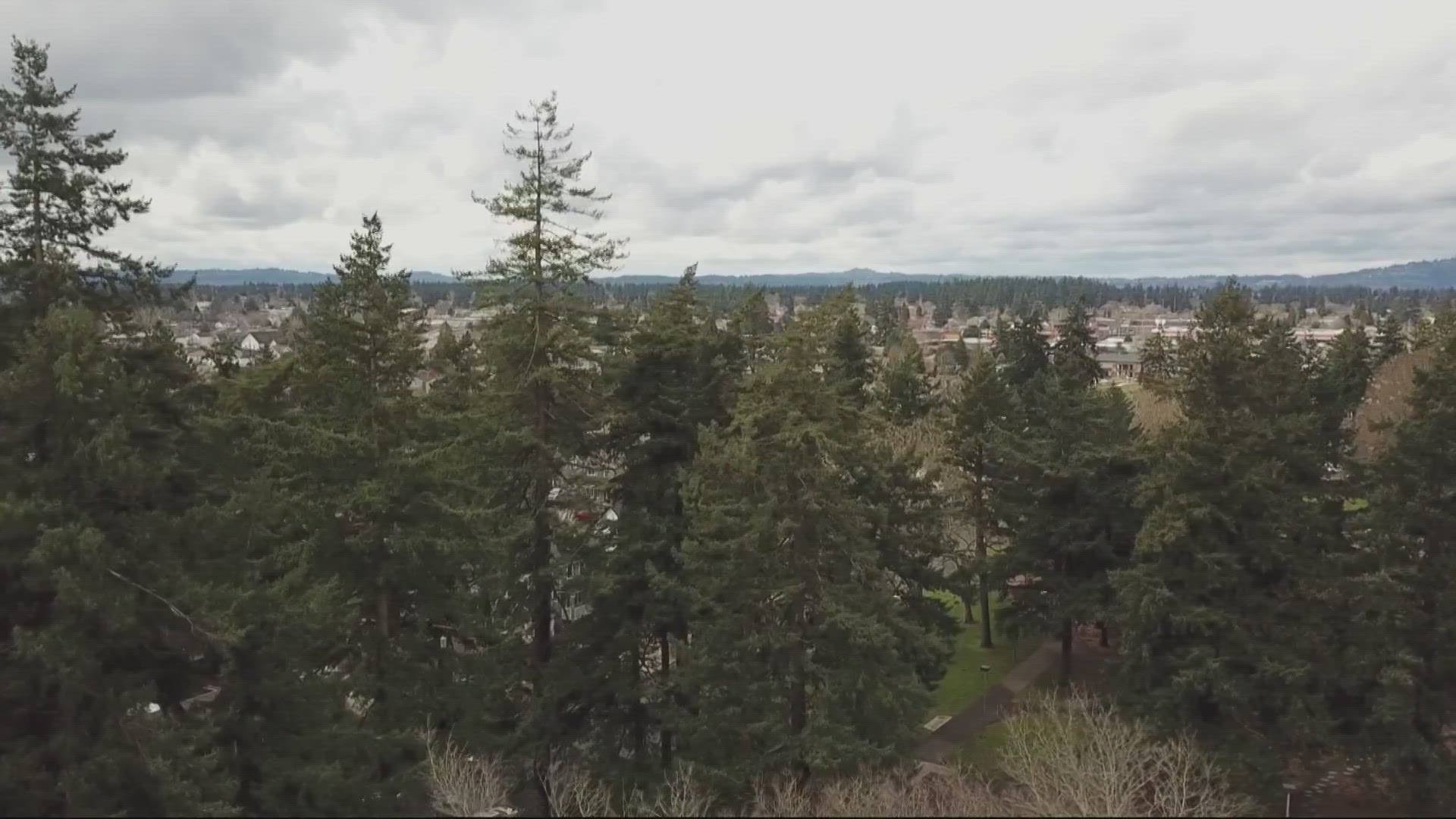PORTLAND, Ore. —
In Northeast Portland, what was once a landfill is now home to rolling lawns, a fenced dog park and a community garden.
Thomas Cully Park, opened in 2018 off Northeast 72nd Avenue, has become a green oasis in a neighborhood where previously there were few of them, according to Sentilla Hawley, communications and development coordinator for Verde, a nonprofit that was instrumental in designing and building the park.
“It really combatted the negative effects of pollution that the landfill was creating in the neighborhood,” Hawley said. “With the planting of trees, it also combatted the urban heat island effect.”
Rep. Khanh Pham, who represents parts of outer Southeast Portland, had Verde’s work in mind when she helped draft House Bill 3016, the Trees Restoring Economic and Environmental Stability, or TREES, Act.
The bill seeks to boost tree canopy across the state to temper the risk of dangerous heat waves.
"In 2021, my district was one of the most impacted in terms of the number of people who died in the heat dome," Pham said, referring to the June 2021 event where Portland temperatures spiked to 116 degrees. "Those temperatures are lethal, and we know that low-income communities, communities of color, are more likely to live in those communities that don't have access to tree canopy."
The bill would create a statewide assessment tool to measure tree canopy and a grant program to fund tree planting projects in areas that are lacking. It would also establish a program within the Department of Forestry to help communities weather the effects of tree pests, like the Emerald Ash Borer, which are threatening some of the state’s forests.
And, Pham said, the bill would produce economic opportunities for those looking to get a foothold in the forestry industry.
“There are really good paying careers as arborists that we want to make sure that people have a career pathway to,” Pham said.
But perhaps most importantly, Pham noted that trees are a proven method to combat some of the effects of our changing climate.
In urban areas with fewer trees, solar radiation is absorbed by concrete and buildings, leading to what is called the urban heat island effect. Studies have shown that temperatures can be vastly hotter, by as much as 20 degrees, in neighborhoods with ample tree canopy compared their less-shaded counterparts.
"We do know that trees are one of the cheapest, most effective ways to reduce climate pollution, to cool our air, to recharge our water table,” Pham said.
But Pham’s bill is intended to boost tree canopy statewide, not just in Oregon’s population centers.
That would be welcome news to Eddie Melendrez, a city council member in Ontario. The city of roughly 11,000 sits in the high desert of Eastern Oregon near the border with Idaho and Melendrez said the city is beautiful, though not well-forested.
“There's a lot of a lot of sagebrush, a lot of mountains, but there's not a lot of trees,” he said.
That means, in the summer when temperatures climb, there are fewer places for people to seek refuge in the shade. More trees would also help with one of the more pernicious impacts of climate change in that part of the state: drought.
“What I've seen every year is that we're always in a drought,” he said. "We're always hoping for snowfall, for more rain.”
Pham said the bill, which would cost roughly $15 million taken from the state’s general fund, would allow the state to tap into many more millions of federal dollars allocated to climate change efforts in the Inflation Reduction Act.
And, while the bill still needs to pass a committee vote before it can be voted on by the full House, Pham said she is optimistic that it will get support from lawmakers across the political spectrum.
“What I've been really heartened to see is that all parts of our state are really coming together to express the need for a bill like this and I’m happy to see bipartisan support.”

